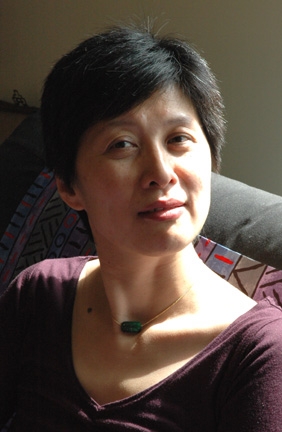Interview: Author Zha Jianying on Grappling With a Rising China

Author and New Yorker contributor Zha Jianying (also known as Jianying Zha) will be appearing at the Asia Society in New York on Monday, May 16 to discuss her new book Tide Players: The Movers and Shakers of a Rising China, which reviewers are calling "special" and "honest and thoughtful."
Zha's Asia Society appearance will be a discussion with Orville Schell, Arthur Ross Director of the Asia Society's Center on U.S.-China Relations, and Susan Jakes, the Center's Arthur Ross Fellow. Jakes recently caught up with Zha for a brief interview, which you can find below. To register for this free event on Monday, click here.
Your forthcoming book, Tide Players: The Movers and Shakers of a Rising China, captures the past decade or so in a series of profiles. These include an electronics tycoon, a celebrity couple who are real estate moguls, a writer who has aligned himself with the state and your brother, who has served time in jail for his dissidence. How did you assemble this group?
In fact I had assembled a much larger group and tracked all sorts of characters in the course of my research and interviews: China is going through a great historical moment of transformation; there are so many fascinating people and stories out there. But eventually I decided to focus on this contrasting group of entrepreneurs and intellectuals, who nevertheless are all key players at the forefront of economic changes and political battles shaping today's China.
You are unusual among English-language writers on China in that you also write and publish in Chinese. You have made homes in both the U.S and your native Beijing over the past three decades. How does a book like this one differ from those you write for Chinese readers? How does the travel back and forth shape your understanding of your home country.
My writing career started in Chinese and in China, but a book like this cannot come out in China because some of the content and characters would be considered too sensitive or taboo. This freedom of not having to dance with bound-feet, however, comes with a challenge for me: how to write lucidly in a second language for a foreign audience from an insider-outsider perspective? It has forced me to be at once more rigorous and more patient, which has been crucial for my intellectual maturity.
Geography matters: changing distance gives you a jolt but also refreshes and sharpens your eye. Once you learned to cope with a level of schizophrenia resulted from such a bipolar life, the dual perspectives can lead you to a more richly textured and compassionate understanding of both cultures.
You call the China your movers and shakers inhabit "rising." What does that mean to you? How do you feel it in the lives of your subjects and friends?
One of the epigraphs I've selected for the book is from "Julius Caesar": "There is a tide in the affairs of men……" I use the word "rising" in the Shakespearean sense. A rising tide is a force of nature, with all its power, speed and inevitability. You may sail on it to great fortune; you may get drowned or try to run away from it. You can't alter a rising tide, but, depending on how you play it, you can alter your own destiny and influence others. All my friends and everyone in this book are preoccupied and grappling with this "rising China." It's absolutely the central drama of their lifetime.
Related link:
Video: Zha Jianying at the Asia Society, 5/16/11


